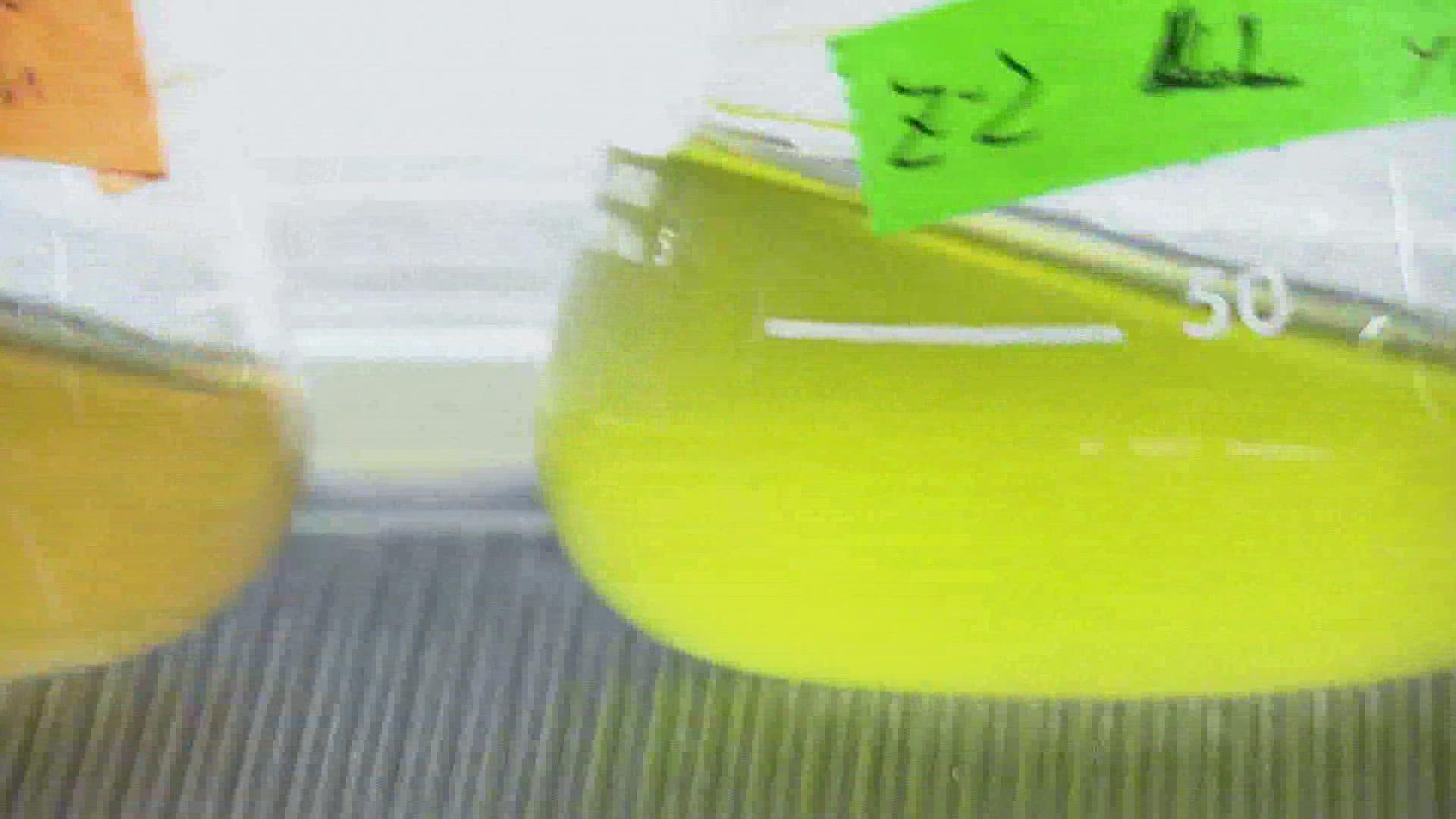FORT COLLINS, Colo. — It's something that's hard to forget each time the tires hit the road.
"Diesel and gas prices are going up a huge amount," postdoctoral research scientist Maxwell Ware, Ph.D. said.
But, there could be an alternative around the bend. One that's a little greener.
"I think there's actual huge benefits for the public with the type of work we're doing," Ware said. "We actually have a more consistent and potentially reliable form of biodiesel that can be produced by algae."
Ware is passionate about algae.
"There's probably not many people in the world getting to do what we're doing here, and that really brings it home," he said.
He's been researching algae at the Peers Lab at Colorado State University for the past four years. He's hopeful that one day the algae he studies can help make more sustainable fuels.
"If we're actually using algae as that carbon source for diesel, then we're not producing net CO2 and polluting the environment, and ultimately we have to change that behavior very soon," Ware said.
Graham Peers, Ph.D., Associate Professor in the Department of Biology, has been working in this lab for the last 11 years.
“We know that we can make biofuels," he said. "The question is, can we make biofuels that are economically competitive with current fossil fuels? And that’s the challenge right now for the research community, to not only make it economically, but to make it so that it can scale up as well.”
More specifically, Peers said the scientists he works with are trying to improve photosynthetic efficiency in algae.
"It all begins with photosynthesis, all biofuels," Peers said. "We're interested in how light energy and CO2 are utilized by the algae to make more of themselves and how can we manipulate that."
He said most algae and plants run at an extremely low efficiency rate -- 1% or less.
"So that means 99% of the light they absorb doesn’t go toward building biomass. It gets wasted," Peers said. "If we can increase that efficiency, even just a little bit, then we’re going to be able to produce more biofuels, more economically, faster."
He said this is a decades-long endeavor, but they're excited about the path they're on.
"Colorado has been very wonderful to the field of algal biofuels," Peers said. “There are a lot of folks within Colorado both at Colorado State University, CU Boulder, the National Renewable Energy Laboratory and the Colorado School of Mines who are working on this problem to try and make more sustainable fuels in the future.”
Besides biofuel, there are also other uses for the algae they're studying.
“Photosynthesis is the base point for growing crops, for instance, and those crops could be algae crops that are used for protein for feed, could be for making nutraceuticals, so that’s things to improve human health and crop improvement for growing things like corn," Peers said. "We could maybe use algae and their high photosynthetic rate as models for improving the growth of plant crops as well.”
The research they're doing has been funded by the Department of Energy, the National Science Foundation, NASA and private industries.
SUGGESTED VIDEOS: Science & Weather

